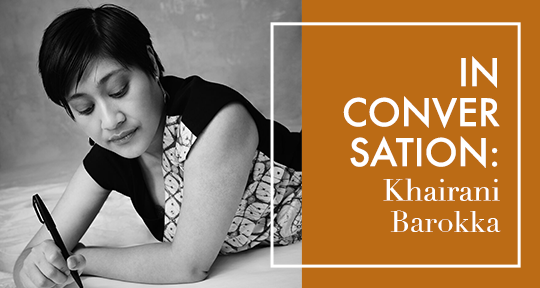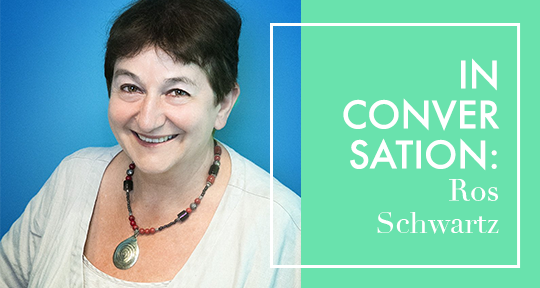Much has been said about Khairani Barokka’s wide-ranging, multidisciplinary body of work, spanning literature—spoken word poetry, dystopian fiction, scholarly texts—and media—textual, visual, performance. In the journal Research in Drama Education, she is an academic exploring “the limits of access and the framing of disabled performers from non-Western backgrounds in Western contexts.” According to the Journal of Postcolonial Writing, however, she is a poet of “ecocritical agenda advancing environment justice against deforestation, the loss of biodiversity, pollution, further revaluing indigeneity to the more-than-human.”
In this interview, I asked Barokka about Modern Poetry in Translation, the London-based magazine where she serves as editor; her movement between genres; and translating from the languages of her homeland, Indonesia—including BISINDO or Indonesian Sign Language.
Alton Melvar M Dapanas (AMMD): In your Catapult essay “The Case Against Italicizing ‘Foreign’ Words,” you made a case for maintaining an “active ethos of not italicizing supposedly foreign words,” with the hope that those in the publishing industry would follow suit. Can you speak more on how publications in the North Atlantic, and even Anglophone ones within the Global South, perpetuate a myth of “cultural purity” through linguistic gatekeeping?
Khairani Barokka (KB): It’s been really heartening to receive the kind responses people and publications have had to that article over the past two years, and it even caused Massachusetts Review to change their house style, which was very encouraging. It’s the best feeling when colleagues say that they’ve changed the minds of editors by sending them the piece, which I hope has saved the significant amount of time we writers can spend arguing these points.
I think the perception of certain words or names as ‘foreign’ does have to do with some publications’ regulations of house style, in which the word ‘foreign’ is not put in quotation marks, i.e., ‘Be careful with foreign words.’ And there have been some people who respond positively to my article, but still don’t put ‘foreign’ in quotation marks, when those quotation marks say a lot about gatekeeping. The ‘Other’ is fixed in many imaginations, which is interesting when you work in a country like the United Kingdom—where names and words come from so many corners of the globe, yet foreignising them is still de rigueur in many minds. Someone can be part of British society, and their name can still be regarded as ‘foreign,’ even if they’re a British citizen or born here (and of course, we can get into the hierarchies of bureaucracy and migration status!).
This has much to do with a certain ‘mythical English reader,’ which is usually assumed to be white, middle class, and monoglot; colleagues like Anton Hur have really been pushing back against this. Why can’t we, as supposed outsiders, be the idealised English reader for translations? Why isn’t the responsibility of a translation tied back to the linguistic communities it’s translated from, many members of which shouldn’t be forced to make literature ‘understandable’ to a very narrow demographic? The more we recognise these dynamics, the more we can unpack and minimise colonial tendencies in the literary arts. God knows it was assumed we as Indonesian children knew all the references in translated Enid Blyton books, for instance. It’s about cultural dominance, and the assumptions that go with that. READ MORE…


